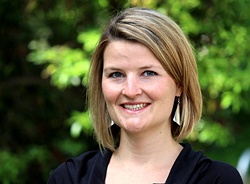
In the United States, the prevalence for obesity doubles as young adults move from their 20s into their 30s. At the same time, not-so-healthful eating habits increase and physical activity declines.
Approximately 70 percent of young adults are employed in the United States, yet little is known about whether or how the food and physical activity environments in their places of work contribute to their health.
To explore workplace influence, the University of Minnesota School of Public Health analyzed data from 1,538 employed young adults, participants in Project EAT, a large cohort health survey of adolescents and young adults led by Dianne Neumark-Sztainer, epidemiology and community health professor. Workplace characteristics associated with weight-related outcomes included soda availability, proximity to a fast food outlet, living close to work and perceived ease of eating a healthy diet or being active at work.
Researchers found that 17 percent of young people in workplaces with a healthful food environment were obese compared to 24 percent with low exposure to a healthful food environment. A high proportion of young adults (80 percent) reported soda and sweets/snacks were frequently available at work; only half reported that it was easy to eat a healthy diet or be physically active at work.
Few population-based obesity interventions have targeted young adults, the authors write, and those that have were administered in university/college settings limiting their ability to reach some people at risk.
“There is a critical need to identify new interventions that promote healthy weight-related behaviors and prevent obesity in young adults,” said Allison Watts, lead author of the study and post-doctoral fellow at the School of Public Health. “Workplace environments are one setting that can be harnessed to better support their healthy eating and activity behaviors as part of a comprehensive approach to obesity prevention.”
The study appeared in the Journal of Epidemiology & Community Health.

